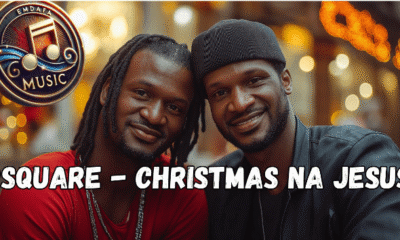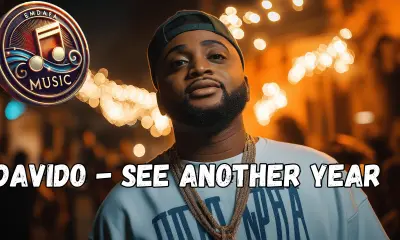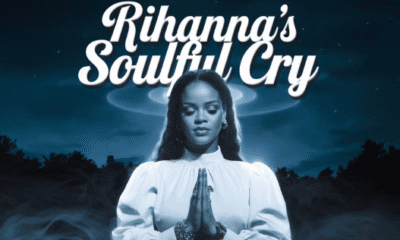NaijaGists.com Latest News Updates
Nigerian Greeting Customs: How To Say Hello In Yoruba, Hausa & Igbo Language
Nigerian Greeting Custom: How to Say Hello in Yoruba, Hausa & Igbo Language
Today, we bring you a comprehensive article on “Nigerian greeting custom“; showing the various way the Yorubas, the Hausas and the Igbos say hello.
Nigerians are very friendly and hospitable people. And even in the face of the growing insecurity, poverty and unemployment, the country’s citizens have been ranked among the most hospitable set of people in the world. The custom of greeting in the country is sacrosanct, across all cultures.
In this piece, we have come up with a comprehensive write-up, emphasizing the uniqueness and importance of the Nigerian greeting custom. And we’ll also be stressing out the key aspects of the greeting custom of the three main tribal groups in Nigeria. Read on!
Importance of Greeting in Nigerian Culture
Nigeria is a multicultural nation, with over 500 cultural groups, each having its own language. However, these groups are broadly classified into three – Yoruba, Hausa and Igbo.
The three main ethnic groups in Nigeria have a whole lot of differences among them; however, one thing they have in common is the level of importance they all attach to greeting. In fact, each tribal group has their own unique greeting custom, which, as pointed out earlier, is held sacrosanct.
Typically, all Nigerian tribes place sheer important on greeting, particularly greeting of elders and guests. And by a long stretch, it is generally seen as a form respect. Any deviation from the establish standard, as it relates to individual tribe’s greeting custom, is seen as a sign of disrespect, impudence and ignominy.
In a nutshell, greeting is synonymous to respect in Nigeria, and those who adhere strictly to the greeting custom are generally seen as respectful and noble, while those who err in this aspect are considered disrespectful and ignoble.
Different Forms of Greetings in Nigeria
As emphasized earlier, Nigerian greeting custom is widely divided along cultural lines. And each tribe has their own unique ways/forms of greeting(s) different classes of people (elders, royal fathers, guests and so on).
In the Yoruba tribe, for instance, the male folks are expected to prostrate (lie face-down) to greet their elders and royal fathers, while the female folks are expected to kneel.
Yoruba’s greeting tradition is more or less a replica of other major cultural group, barring slight changes. For instance, the Igbos generally do not prostrate for neither their parents nor their royal fathers. However, the female folks are required to kneel while greeting their elders.
How Do You Greet Someone in Yoruba Language?
How to Say Hello in Nigerian Yoruba Language
In Yoruba language, saying “hello” as a form of greeting is not in practice. In fact, there is no known (unless derived) meaning for the term in Yoruba language. Nonetheless, instead of saying “hello”, the Yorubas generally use the present event or time to greet themselves.
Typically, you hear something like;
- e pele o (well-done or welcome);
- e nle o (same as the first one);
- eku irin (happy walking);
- eku orun (happy sunshine);
- eku ojo (happy raining);
- eku Ijoko (happy sitting);
- eku Osan (like Good Afternoon); and
- eku ale (good evening), and so on.
These and more take the place of “hello” in Yoruba.
However, in the contemporary Yoruba world (just as it is across the globe), the term “hello” is widely used while answering the phone.
How Are You in Yoruba
The sentence “how are you”, unlike “hello” is a more concise term, and a clearer form of greeting. The following terms are the Yoruba interpretations of “how are you”,
- Ba wo ni – dada ni (I am fine)
- Se dada ni – Bee ni (Yes, I am good)
How Are You in Igbo
In Igbo language, the term “how are you” simply means “Kedu ka o di” or “Kedu ka imere”, or in some Igbo dialects like Enugu, you may hear something like “Imaa’ga”
The affirmative/positive response in either case would be “Aa din mma” or “O’dinma (pardon the spelling).
How to Say Hello in Nigerian Igbo Language
“Hello”, like in Yoruba language, has no actual meaning in Igbo language However, there are several greeting terms that aptly take its place in Igbo language.
Some of these terms include:
- Kedu!
- Nnoo (actually means welcome).
- Dallu (also welcome)
- Ke’ we!
- And so on
How to Say Hello in Hausa Language
In Hausa, the local term for “Hello”, though not the actual meaning, is Sannu. Other notable ones include Salam alaykum (peace be onto you) and so on. These constitute the basic forms of greeting among the Hausa people.
Nigerian Pidgin English Examples
Like most prominent commonwealth countries. Nigeria also has her own derivative of English language. Basically, the original English is to the Brits, American-English is to the US, while “Pidgin English” is to Nigeria.
Although, Pidgin-English is not recognized officially, as Nigeria wholly adopts British-English as her official language, the language remains the most widely spoken language in the country. It is being spoken more than any other language, foreign and indigenous, in the country.
Some of the common examples of Nigerian Pidgin-English include:
- Wetin dey happen; meaning “What is happening? or “What is going on?”
- Na who u be; meaning “Who are you?
- Wahala dey; meaning ” There is problem”
- How una dey; meaning ” How are you?”
- Clear road; meaning “Make way”
- Abeg; meaning “Please”.
- No vex me; meaning “Do not upset me”
- God don butter my bread; indicating a breakthrough or a favorable situation.
- Na so na; meaning “You are right”
- And more
God Bless You in Yoruba Language
In Yoruba language, the phrase “God bless you” simply means “Olorun yi o je ko dafun e”. Quite straightforward, right?
Happy Sunday in Yoruba Language
The phrase “Happy Sunday” is a commonly used greeting term. It is the rough translation of the Yoruba weekend greeting tagged “Eku ojo isimi”, which literally means “happy resting day”.
What Does Omo Mean in Nigerian Yoruba Language
Omo is a rather ambigious term, with several meanings, depending on the context in use. Generally speaking, Omo, in Yoruba language, could mean any of the following:
- Child/kid/baby
- Babe/young lady
Sweet Words in Yoruba Language
Sweet words are not limited to English. In fact, Yoruba language hosts innumerable romantic words and phrases. These words/phrases make up what your sweetheart would love to hear.
Here are some of these words:
- Onitemi; meaning “My one and only”
- Ododo mi; meaning “My flower”
- Orekelewa; meaning “Beauty to behold” or “an astonishing beauty”
- Apon bepore; meaning “Light-skinned as a palm oil”
- Ade orimi; meaning “My king” or “My crown”a
- Olori mi; meaning “My queen”
- Aya mi; meaning “My wife”
- Oko mi; meaning “My husband”.
- Ori Ade mi; meaning “My king”
- Ayanfe; meaning “the one I’ve chosen to love”
- Eni bi okan mi; meaning “My heart”
- Ololufe; meaning “My love”
- Ife mi; meaning “My love”
- Arewa; meaning “Beautiful damsel”
- And more.
Nigerian Language Bad Words
In the Nigerian society, certain words cut across tribal lines, and some of these words are generally considered bad words. Many of these words are classified as ignoble, immoral and vulgar. While some of these words originate from Yoruba, Hausa and Igbo, others are basically Pidgin-English and slangs.
Some of the most notorious “bad words” in Nigeria include:
- Mumu; meaning fool
- Your fada; indicating a direct insult to your father
- Your mama; a direct insult to your mum.
- Aboki; denigrating term for northerners
- Ode; meaning “fool”
- Anuofia; meaning wild animal in Igbo Language
- Were; indicating a mad man in Yoruba language
- Okrika; indicating substandard products
- And more
How To Say Goodbye in Different Nigerian Languages
“Goodbye” is one of the most used terms around, and of course, each tribe in Nigeria has their own unique ways of bidding farewell (saying goodbye).
Here’s how to say goodbye in Hausa, Igbo and Yoruba:
- Hausa: Sai Wata Rana; Ban Kwana; Said Sannu; Sai Gobe; or Sai an jima.
- Igbo: Ka o di echi; Kaa’ ome sia; or Kaa’ odi
- Yoruba: O daa boo; O di labo; or Ipade dabo
How to Say Thank You in Different Nigerian Languages
Here’s a succinct compilation of how to say “thank you” in Yoruba, Hausa and Igbo:
- Yoruba: E Se; E se pupo; or E ma se e
- Hausa: Na’a go de
- Igbo: Ime’ela or Da’alu
So, when a Yoruba, Igbo or Hausa man assists you in one way or another, be kind enough to acknowledge the act of kindness by saying “E se pupo”, “Ime’ela” or “Naa go de”, as appropriate.
How To Say Welcome in Different Nigerian Languages
For a foreigner, “welcome” is probably the most important word. So, we’ll be showing you a brief summary of how the major tribes in Nigeria say welcome.
- Yoruba language: E ku abo; eku irin; or e’ nlee
- Hausa language: Sannu de zuwwa or Sannu
- Igbo: Daalu or Nnoo
So, if you find yourself in Yorubaland, Hausaland or Igboland, you should expect to hear these words and phrases.
Do you have any addition to these greeting customs? please drop them in the comment box below.

































